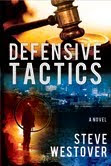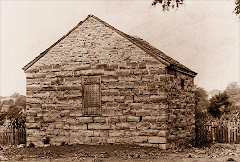Moses 7:18 And the Lord called his people Zion, because they were of one heart and one mind, and dwelt in righteousness; and there was no poor among them.
President Spencer W. Kimball said: “For many years we have been taught that one important end result of our labors, hopes, and aspirations in this work is the building of a Latter-day Zion, a Zion characterized by love, harmony, and peace—a Zion in which the Lord’s children are as one.
“The vision of what we are about and what should come of our labors must be kept uppermost in our minds as we learn and do our duty in the present implementation of welfare service. This applies equally to all Church activities. . . .”
In the Journal of Discourses, Brigham Young taught, “The length of time required ‘to accomplish all things pertaining to Zion’ is strictly up to us and how we live, for creating Zion ‘commences in the heart of each person.’” (9:283.)
Pure in Heart
D&C 97: 21 Therefore, verily, thus saith the Lord, let Zion rejoice, for this is Zion—THE PURE IN HEART; therefore, let Zion rejoice, while all the wicked shall mourn.
Brigham Young in 1863 said, “. . . Zion can be built up only among those who are pure in heart, not a people torn by covetousness or greed, but a pure and selfless people. Not a people who are pure in appearance, rather a people who are pure in heart. Zion is to be in the world and not of the world, not dulled by a sense of carnal security, nor paralyzed by materialism. No, Zion is not things of the lower, but of the higher order, things that exalt the mind and sanctify the heart.
Spencer W. Kimball- “Zion is ‘every man seeking the interest of his neighbor, and doing all things with an eye single to the glory of God.’ (D&C 82:19.) As I understand these matters, Zion can be established only by those who are pure in heart, and who labor for Zion, for ‘the laborer in Zion shall labor for Zion; for if they labor for money they shall perish.’ (2 Nephi 26:31.)”
“May I suggest three fundamental things we must do if we are to ‘bring again Zion,’ three things for which we who labor for Zion must commit ourselves.
“First, we must eliminate the individual tendency to selfishness that snares the soul, shrinks the heart, and darkens the mind. . . . “. . . It is incumbent upon us to put away selfishness in our families, our business and professional pursuits, and our Church affairs. . . .
Be One
A house divided cannot stand. We must be unified in purpose and effort.
4 Nephi 1:17 There were no robbers, nor murderers, neither were there Lamanites, nor any manner of -ites; but they were in one, the children of Christ, and heirs to the kingdom of God.
“Second, we must cooperate completely and work in harmony one with the other. There must be unanimity in our decisions and unity in our actions. After pleading with the Saints to ‘let every man esteem his brother as himself’ (D&C 38:24), the Lord concludes his instructions on cooperation to a conference of the membership in these powerful words:
“‘Behold, this I have given unto you as a parable, and it is even as I am. I say unto you, be one; and if ye are not one ye are not mine.’ (D&C 38:27.) . . .
Sacrifice
“Third, we must lay on the altar and sacrifice whatever is required by the Lord. We begin by offering a ‘broken heart and a contrite spirit.’ We follow this by giving our best effort in our assigned fields of labor and callings. We learn our duty and execute it fully. Finally we consecrate our time, talents, and means as called upon by our file leaders and as prompted by the whisperings of, the Spirit. In the Church, as in the Welfare system also, we can give expression to every ability, every righteous desire, every thoughtful impulse. Whether a volunteer, father, home teacher, bishop, or neighbor, whether a visiting teacher, mother, homemaker, or friend—there is ample opportunity to give our all. And as we give, we find that ‘sacrifice brings forth the blessings of heaven!’ And in the end, we learn it was no sacrifice at all.” (In Conference Report, Apr. 1978, pp. 122–24; or Ensign, May 1978, p. 81.)
No Poor Among Them
Deuteronomy 15:4 Save when there shall be no poor among you; for the Lord shall greatly bless thee in the land which the Lord thy God giveth thee for an inheritance to possess it:
Remember, the Land of Zion is an inheritance to the Saints, or the people of Zion. To qualify for the inheritance there can be no poor among us. What does this mean? Will everyone be equal in possessions? Is this to be some kind of communist community?
President J. Reuben Clark said, “D&C 51:3 affirms that every man is to be ‘equal according to his family, according to his circumstances and his wants and needs.’ Obviously, this is not a case of ‘dead level’ equality. It is ‘equality’ that will vary as much as the man’s circumstances, his family, his wants and needs, may vary.” (In Conference Report, Oct. 1942, p. 55.)
Zion is not a communist society. Even in the early days of the united order, each individual had personal ownership of property and each family was given according to their need. To “have no poor among them” means that we watch after, serve and support all in our midst. Currently this is accomplished by donating fast offerings for the bishop to allocate as needed.
We watch after one another as we home teach, we offer service to one another so that all will have according to their needs. We may not be equal in all possessions but we must be willing to offer and give all that we have to assist the church and the people.
When we ensure there are no poor among us, when we are unified in the purposes of the Lord, and when we are willing to sacrifice all that is required of us, we may be considered a Zion people because we will be pure in heart.
Subscribe to:
Post Comments (Atom)

























No comments:
Post a Comment